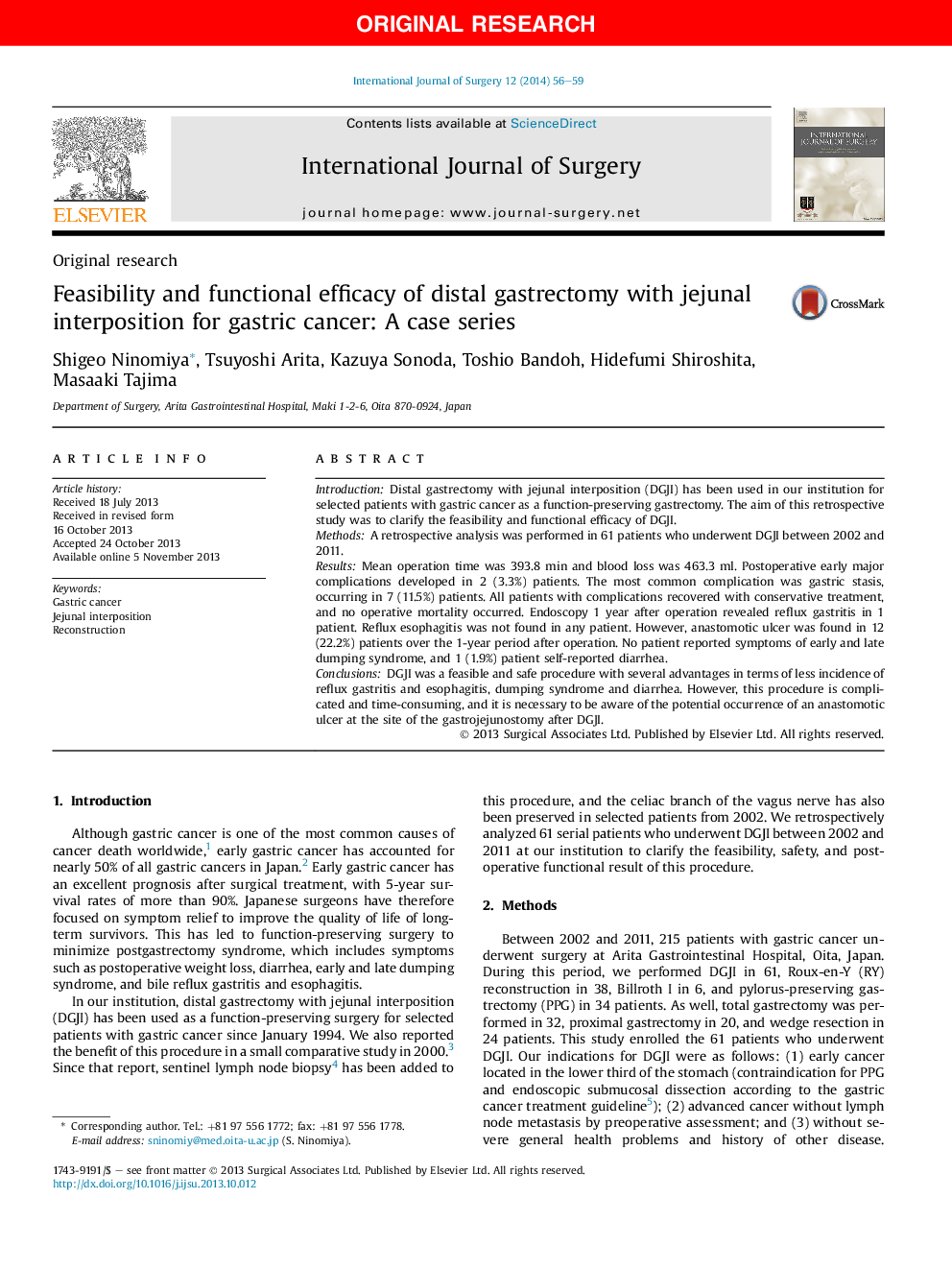| Article ID | Journal | Published Year | Pages | File Type |
|---|---|---|---|---|
| 4286067 | International Journal of Surgery | 2014 | 4 Pages |
IntroductionDistal gastrectomy with jejunal interposition (DGJI) has been used in our institution for selected patients with gastric cancer as a function-preserving gastrectomy. The aim of this retrospective study was to clarify the feasibility and functional efficacy of DGJI.MethodsA retrospective analysis was performed in 61 patients who underwent DGJI between 2002 and 2011.ResultsMean operation time was 393.8 min and blood loss was 463.3 ml. Postoperative early major complications developed in 2 (3.3%) patients. The most common complication was gastric stasis, occurring in 7 (11.5%) patients. All patients with complications recovered with conservative treatment, and no operative mortality occurred. Endoscopy 1 year after operation revealed reflux gastritis in 1 patient. Reflux esophagitis was not found in any patient. However, anastomotic ulcer was found in 12 (22.2%) patients over the 1-year period after operation. No patient reported symptoms of early and late dumping syndrome, and 1 (1.9%) patient self-reported diarrhea.ConclusionsDGJI was a feasible and safe procedure with several advantages in terms of less incidence of reflux gastritis and esophagitis, dumping syndrome and diarrhea. However, this procedure is complicated and time-consuming, and it is necessary to be aware of the potential occurrence of an anastomotic ulcer at the site of the gastrojejunostomy after DGJI.
